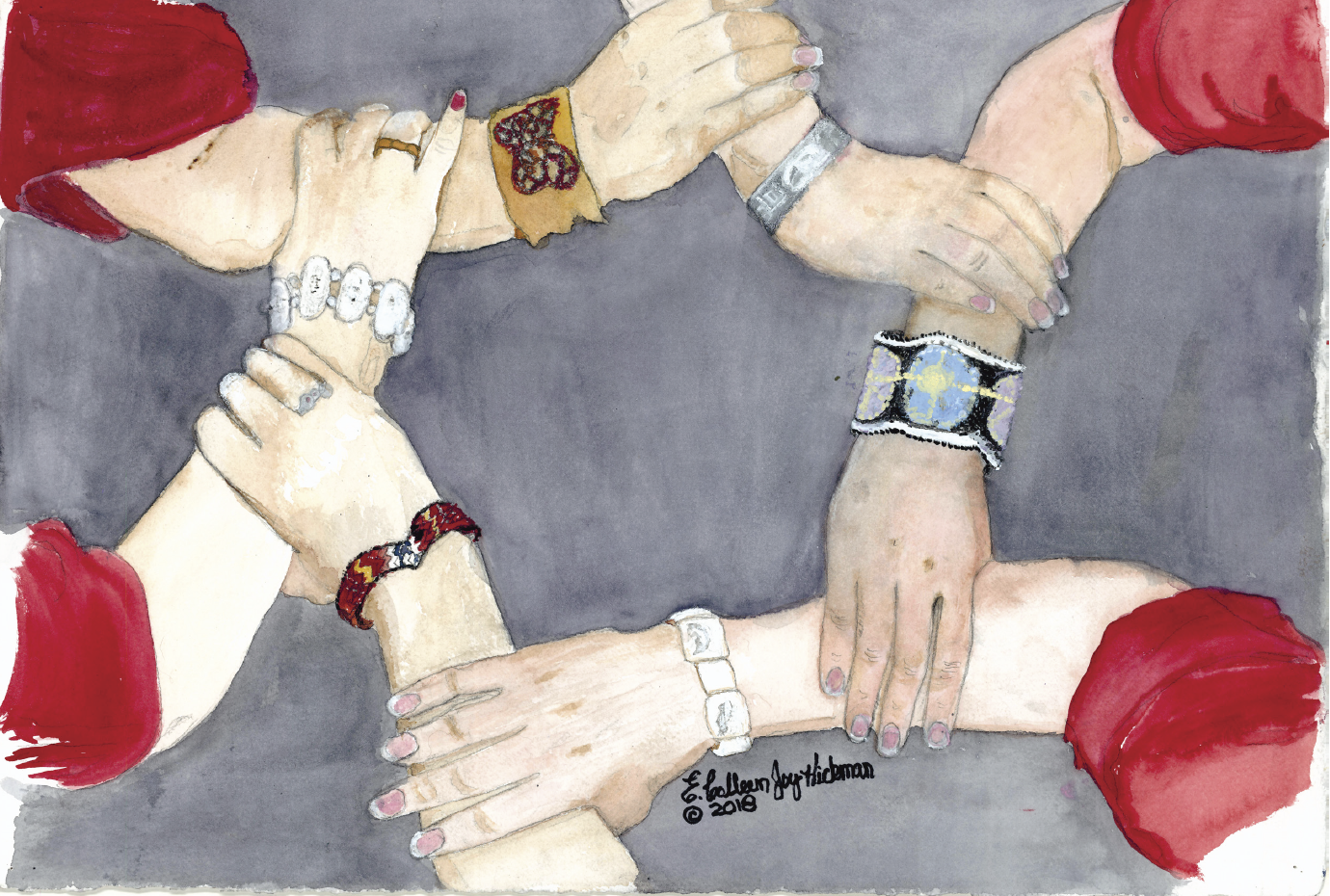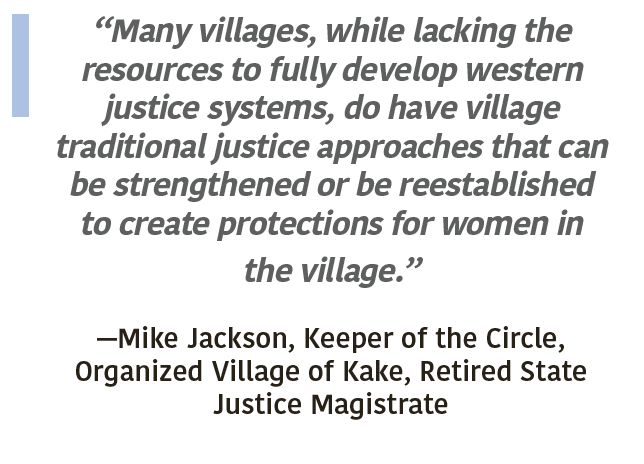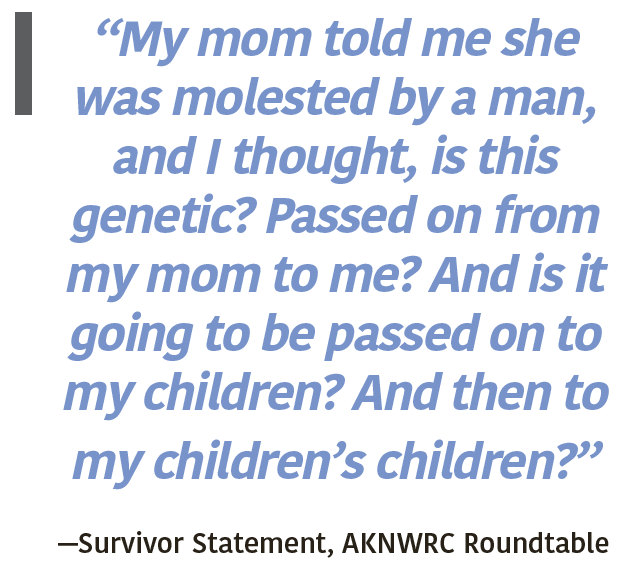Alaska Native Women: Ending the Violence, Reclaiming a Sacred Status

New 2023 Book Release to Understand Violence Against Alaska Native Women
A story is shaped and presented by the storyteller. The new Alaska Native Women’s Resource Center (AKNWRC) book brings a new voice providing the Indigenous understanding of violence against Alaska Native women.
After decades of advocating for survivors, the board and staff members of AKNWRC understand domestic violence and the sacred status of Alaska Native women. The ongoing crisis of violence is linked to the colonization of the Indigenous peoples in Alaska. This story is generally missing in western literature but is increasingly presented by Indigenous women and peoples around the world and at the United Nations. Violence is not traditional among Indigenous cultures. Native women were respected and honored. The safety and well-being of women were safeguarded. Today Indigenous cultures continue, despite colonization, to be protective factors. “Alaska Native Women: Ending the Violence, Reclaiming a Sacred Status,” the title of AKNWRC’s new book, is a political statement and provides direction to the movement to make legal and policy reforms. Ending the violence against Alaska Native Women is organically linked to restoring the sacred status of women held within sovereign Indigenous nations. The new AKNWRC resource book is written to support Tribal leaders, advocates, and survivors in understanding the path forward to create the changes needed to end domestic and sexual violence.
Violence is not traditional among Indigenous cultures. Native women were respected and honored. The safety and well-being of women were safeguarded. Today Indigenous cultures continue, despite colonization, to be protective factors. “Alaska Native Women: Ending the Violence, Reclaiming a Sacred Status,” the title of AKNWRC’s new book, is a political statement and provides direction to the movement to make legal and policy reforms. Ending the violence against Alaska Native Women is organically linked to restoring the sacred status of women held within sovereign Indigenous nations. The new AKNWRC resource book is written to support Tribal leaders, advocates, and survivors in understanding the path forward to create the changes needed to end domestic and sexual violence.
AKNWRC recognizes the authority, responsibility, and right of Alaska Native women, children, and two-spirited relatives to be protected by their Tribal governments like others are by state and territorial governments. The book’s premise is that domestic violence was not traditional to Alaska Native peoples and offers the counterbalance view that Alaska Native culture offers protective and healing practices to support survivors and restore balance for families and communities. By identifying the origins of domestic violence and disrespect of Native women, the resource book offers a path forward that strengthens the solutions found in cultural healing and traditional knowledge for the Indigenous peoples of Alaska.
Within the Pages
The AKNWRC resource book is written from the perspective of Alaska Natives, including the explanation that violence against women stems from the Western legal and societal norms forced upon Alaska Indigenous Nations. The book exposes the raw facts about domestic violence going beyond individual acts of violence while providing the context of why individual violence occurs at disproportionate rates against Alaska Native women, continuing generation after generation since contact.
The first five chapters provide an overview of the current dangerous reality of violence threatening the safety and well-being of Alaska Native women, how the violence was introduced to Alaska Native villages, and the development of the movement within villages to support, respond and increase the safety of women from violence. This Indigenous perspective assumes violence against Native women was introduced by foreign governments to control and forcibly assimilate Alaska Native peoples for their labor and the taking of their lands and natural resources.
The following five chapters provide an understanding of the systemic legal and policy barriers embedded in the current political relationship between Indian tribes in Alaska and the United States. While violence is a reality in all communities, federal laws and policies deny Alaska Native women the same protections and resources from their respective Tribal governments that are available to others by their respective governments. This systematic exclusion explains how the laws and policies of the United States have created the conditions for the violence now prevalent for Alaska Native families. Because of this, AKNWRC argues, the current situation can be corrected by Congress, as demonstrated by the 2022 reauthorization of the Violence Against Women Act.
The book is dedicated to Shirley Moses, Inupiaq, a founding mother of the Alaska Native Women’s Resource Center who passed away on June 13, 2021, and the generations of Alaska Native women and children who have suffered abuse, are missing, or have lost their lives due to domestic and sexual violence.
The AKNWRC launched the book project three years ago to tell the story of violence against women from the view of Alaska Native women, advocates, Tribal leaders, and our communities. The outline and drafts of various chapters were provided as supporting resource materials during numerous AKNWRC-hosted roundtable discussions, Tribal court symposiums, village engagement sessions, and tribal coalition meetings. The pages carry the voices of these partners and community members. AKNWRC’s national partners—the National Indigenous Women’s Resource Center and Indian Law Resource Center—were involved in its development. The principal authors of the book are AKNWRC staff members Michelle Demmert, Debra O’Gara, Tami Truett Jerue, and Jacqueline Agtuca.





